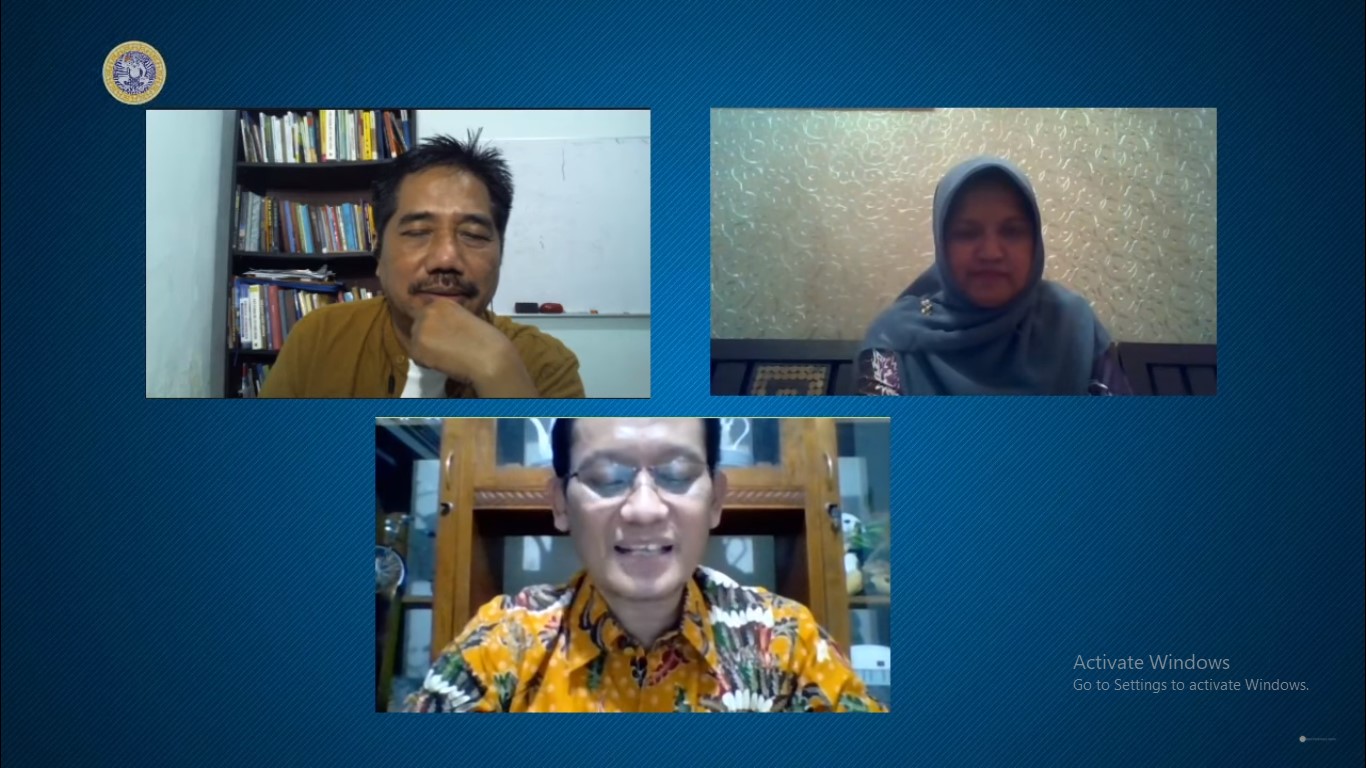UNAIR NEWS – For more than two months Indonesian people have been encouraged to limit their movement and daily activities due to Covid-19 pandemic. In those two months, the community must be able to make adjustments to various changes of activities. It also has an economic and psychological impact.
As a response, Center for Information and Public Relations Universitas Airlangga invited two UNAIR experts for a web seminar entitled “Maintaining Mental Health Amid the Pandemic”. They are Nurul Hartini from Faculty of Psychology and Rudi Purwono from Faculty of Economics and Business.
Opening the discussion session, Nurul said that what emerges in the community this time was a response to various uncertainties. The implementation of Large Scale Social Distancing (PSBB) is extended and is likely to last until the end of the year. This gave rise to many responses, including emotions.
“Outbreaks have an enormous impact on psychology. People show signs of stress, fear, anxiety, panic, grief, and irritability. It might even start with irritability, “Nurul said.
Nurul appealed to all people to remain patient in facing this uncertain situation. She gave a few tips to stay patient. First, continue to have confidence and positive thinking that the pandemic will end. Second, think and be realistic, fill the days with useful activities, both beneficial for yourself and for others.
“Third, don’t ever stop moving, because mentally healthy people are those who always take action and always move,” she added.
Meanwhile, Rudi Purwono said that the economic sector is among the most affected due to pandemic. Economic impacts arise from various sectors, regions, and family levels. All affected by Covid-19.
“The development of the world economy will fall by 30-40 percent, maybe even more than that. The most affected, of course, are those who work in the informal sector, “said Rudi.
For this reason, Rudi said that it was important for the community to have mutual cooperation and work together to help others in need.
“We have large social capital. Many things can be done to help medical personnel, procure masks and hand sanitizers for people in need, distribute food to the affected communities. That’s what we can do, “said Rudi.
Furthermore, due to this pandemic, many people’s consumption activities have increased because they are forced to have daily activities at home. For this reason, Rudi reminded the public to manage proper consumption patterns and make financial planning.
“Make a reasonable consumption, for the routine. Make plans for the next 3-4 months. It is important to manage finances. Also think well whether they are needs or mere impulse. This needs attention, “said Rudi.
In the closing, Rudi advised all elements of society to always comply with existing health protocols, because that would reduce the spread of the virus.
“Do all economic activities with health protocols. For economic industry players, tell the public that production is carried out with correct health procedures. So that all people feel safe to use them, “said Rudi. (*)
Author: Binti Q. Masruroh





